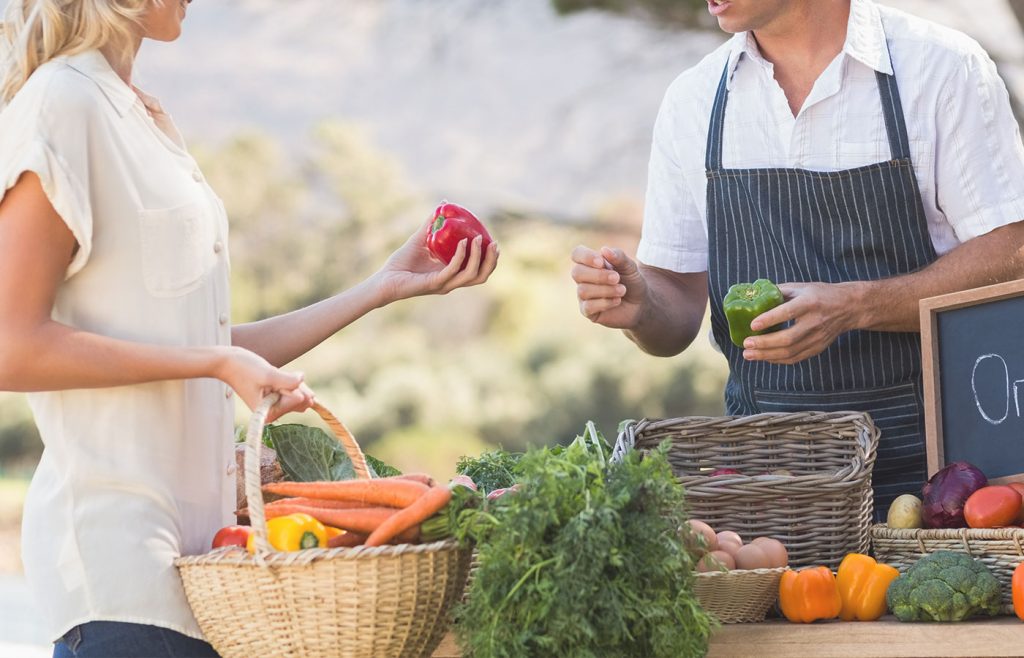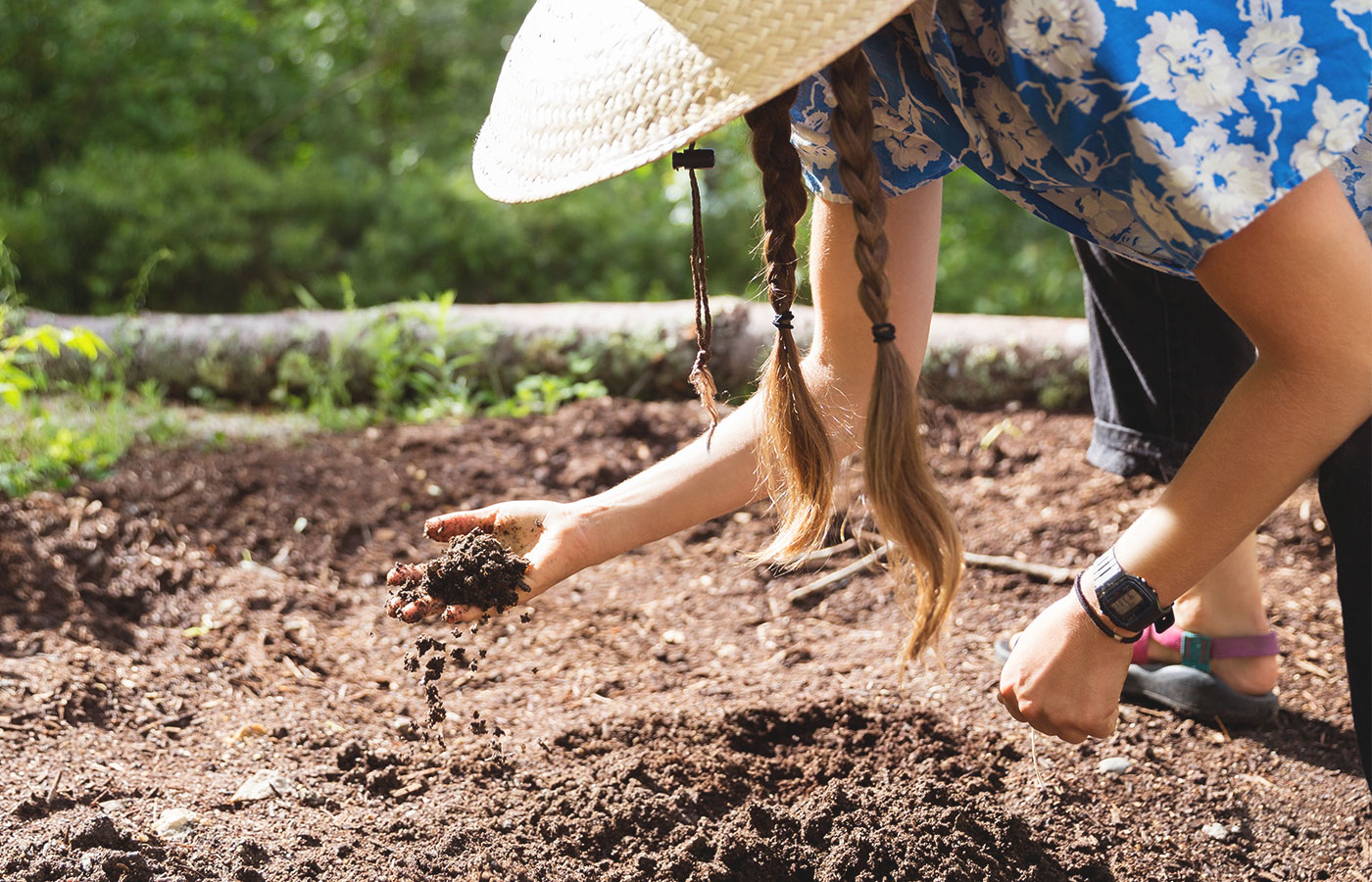I’m often asked whether it is really necessary to choose organic produce. Particularly right now, with the cost of living soaring, it is understandable that many are trying to keep their grocery bills down. It’s true that these kinds of products are more expensive — because the costs of production are so much greater. It stuns and saddens me that we live in a world where the true cost of food and products is not affordable for all. When we choose organic, we not only look after the health of our body systems, biochemical pathways and immune system, but also the health of our family, the health of the soil, and endless ecosystems. Everyone benefits. Let’s explore this further.
Soil quality
In conventional farming practices, soils are used over and over and over again, usually without nutrient-dense replenishment. Every time a crop is grown, it draws the nutrients out of the soil and into itself. The plant uses the nutrients to grow. Then we get the benefits of those nutrients when we eat that food. But if the nutrients in the soil aren’t replaced, or there is no crop rotation, the soils are stripped of their minerals.
From the soil, health and energy are born. The soil contains minerals which we need to live, such as calcium and magnesium. But we can’t eat the soil, so we need a medium that is able to supply us with the Earth’s nutrients. The middlemen are plants – they absorb the nutrients from the soil and make them available to us as food. However, if the soil is deficient in nutrients, then those nutrients are not in the food. So, the quality of the soil where our food is grown plays an enormous role in how we feel, function and look each day.
More nutrients
Farmers periodically saturate their crops with unnatural chemical fertilisers. I refer to them as “unnatural” for many reasons, one of which is that they don’t contain the range of nutrients essential for life. They are primarily made up of three nutrients: nitrogen, phosphorus and potassium. This means that there are more than 10 nutrients missing from any produce grown with these kinds of fertilisers.
Additionally, plants have innate mechanisms designed to help protect themselves from pests. When a plant is left to grow of its own accord and is not sprayed with pesticides, the plant creates substances within itself to help ward off pests. These substances don’t just have the ability to help protect the plant, they also often behave as antioxidants when humans consume them. If the plants are sprayed with pesticides or herbicides, they no longer have to (and don’t) produce these substances that enhance human health and help slow down ageing and degeneration. So, eating organic food is not just about what you miss out on — pesticides — but also what you get — more antioxidants and a greater diversity of nutrients.
Ecosystem health
The industrialisation of food has had a significant impact on both the environment and animal welfare. Conventional farming practices are impacting on soil fertility, certain pesticides have been linked to masses of bee colonies dying out and it’s hard to go a month without hearing about the devastating effects of monoculture crops on all sorts of ecosystems. When you choose organic produce, you are voting with your wallet. You’re communicating to the producers and manufacturers that you want more nutritious, sustainable and ethical products on offer.
Decreasing your synthetic load
Decreasing the synthetic chemical load on your body is another important benefit. Choosing to eat less processed food goes some way toward this, as you start to ingest fewer artificial substances, such as artificial sweeteners, preservatives and other additives. Eating more organically or biodynamically grown food, or simply choosing spray-free options, can play a major role in achieving this.
Maybe cost prohibits you from switching to organic or sustainable products. If this is the case, here are some suggestions for increasing the nutrition in your food.
Mix and match
Any effort to choose organic produce has an impact and sometimes the cost difference is not all that much. Take the time to compare prices and opt for organic when it feels affordable. Another thing to consider is how you eat the food. When you eat a banana, for example, you peel the skin and eat the fruit from inside. An apple, on the other hand, is usually consumed skin and all. So, you may like to use this as a guide to choosing between organic and conventionally farmed produce.

Buy from local farmers markets
Supermarkets have created a vast chasm between us and the food chain. When you cannot speak directly to the farmers, you have no idea how they grew your food. By shopping at farmers markets, not only are you directly supporting the farming industry by cutting out the middle man (who takes a significant cut of the profit), you also have the opportunity to ask them how they grow their food and make informed decisions about what you buy. Plus you get to thank them for their care.
Farmers markets usually have certified organic, organically grown and spray-free produce available too. The certification process contributes to certified organic produce often being more expensive and you may find that the produce grown by farmers who employ organic principles or omit pesticides is more affordable.
Grow your own
Home-grown produce is generally more nutritious, because the time from picking to consumption is significantly reduced, meaning there is minimal nutrient degradation. It also tastes better. How good does a cherry tomato taste picked straight from the vine, compared to one that has been sitting in cold storage for weeks? What about a strawberry? There’s no comparison when it comes to fragrance and flavour.
Plus, gardening is a great way to get outside and include more movement in your day. If you think about the movements you make when you garden, it often includes squatting, walking and pulling which are all functional movement patterns that we need to maintain for great mobility throughout our lives. A little bit of sunshine on the skin is also the best way to get vitamin D which is essential for maintaining bone health and a robust immune system.
Soak produce in water and vinegar
To clean food of both dirt and pesticides at the same time, fill your sink with three parts water to one part vinegar, wash your fruits and vegetables, then rinse them in fresh water, pat them dry and store them for use. Pesticides tend to be fat-soluble, and so general washing to get rid of dirt and germs does not remove them. A little vinegar may help.









